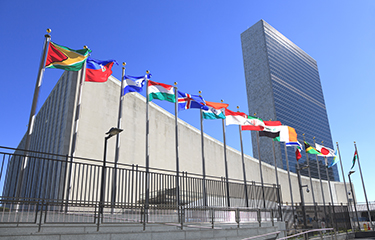UN Fish Stocks Agreement conference makes limited progress on improving management effectiveness of RFMOs

The United Nations Fish Stocks Agreement (UNFSA) Resumed Review Conference, held at U.N. headquarters in New York City, U.S.A., elicited disappointingly few actionable recommendations that the seafood industry could use to further improve, according to several attendees.
UNFSA is a multilateral treaty aiming to promote effective, cooperative management of highly migratory fish stocks – mainly tuna, sharks, marlin, and swordfish. The treaty originally took effect in 2001 and outlines principles for managing shared fisheries on the high seas, especially within fishing grounds that straddle multiple exclusive economic zones (EEZs).
It also defines principles for establishing and operating regional fisheries management organizations (RFMOs), the duties of flag states, mechanisms for the enforcement of conservation and management measures, and the special treatment of developing states.
Periodic review conferences, such as this year’s edition that took place in late May, aim to assess progress, mainly concerning the effectiveness of RFMOs in reducing overfishing. The last UNFSA review session, which occurred in 2016, adopted many strong recommendations to improve the functioning of RFMOs.
However, even though the 2016 session defined several recommendations for RFMOs, a 13 February 2023 report titled “Report of the Secretary-General to the Resumed Review Conference” found that RFMOs had implemented those recommendations unevenly, making the lack of progress at this year’s meeting all the more disappointing for fisheries representatives.
“The overall status of highly migratory fish stocks and straddling fish stocks has not improved since 2016, despite improvements for some stocks and in some regions,” the report concluded. “Indeed, there were no major changes in the overall state of stocks and fisheries catches since the first review prepared by FAO [Food and Agriculture Organization] in 2005.”
The International Institute for Sustainable Development (IISD), an NGO based in Winnipeg, Manitoba, Canada, monitored this year’s review conference closely, providing a day-by-day analysis.
Photo courtesy of Osugi/Shutterstock



Share